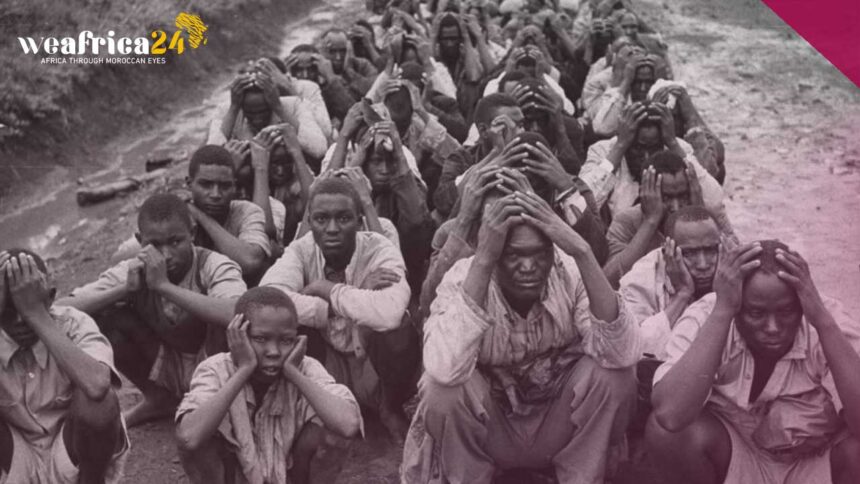Sixty years ago, on December 12, 1963, Kenya declared independence from the British Empire. This declaration marked the culmination of a process that saw the insurgency of the “Mau Mau” in the 1950s. The colonizers had enacted several highly unpopular laws granting them land rights, particularly in the fertile areas around Mount Kenya. The Mau Mau, primarily composed of the Kikuyu, Meru, and Embu ethnic groups, fought for their land and the independence of Kenya.
They were known as the “Army for the Freedom and Lands of Kenya.” The origin of the name Mau Mau is disputed, but it is the name that has endured. For Mavingo Nyaga, a 31-year-old Kenyan, it symbolizes courage. He embarked on a project to photograph and film survivors of the colonial era.
“There is Bernard’s testimony. He recounts how he was arrested for not having his identity papers, but being judged too young for imprisonment, the police beat him instead. He recalls being unable to sit for three weeks afterward! That’s what motivated him to join the Mau Mau. He organized food distribution to the fighters and made weapons,” he narrates.
In 1952, armed with machetes, the Mau Mau attacked those they deemed a threat to their movement, including fellow Africans, and raided settler farms for weapons and supplies. The British declared a state of emergency in October, marking the beginning of the war.
David Anderson, a historian and author on the subject, explains, “The Mau Mau were responsible for the deaths of 32 Europeans throughout the conflict, but even before the official start of their insurgency, they had already killed 300 Africans. The British decided that the problem needed to be eliminated. At the peak of the conflict, over 80,000 people were detained without trial. Laws made it punishable by death to swear allegiance to the Mau Mau or support the movement. Over 1,000 people were hanged.”
A Crucial Role in the Country’s Independence
Several thousand Kikuyus found themselves confined in camps, while the Mau Mau took refuge in the forests around Mount Kenya. Branded as terrorists, they were hunted down and gradually lost the war. However, the struggle persisted in prisons.
Anderson adds, “There was resistance in the detention camps, with inmates refusing to work or obey orders. In 1959, the British had no intention of granting independence to Kenya, at least not until the 1980s. But in March of that year, there was a massacre by authorities at the Hola detention camp. This created political problems in London, prompting the British to decide swiftly on decolonizing Kenya. So, the Mau Mau played a crucial role in the country’s independence.”
In 1960, the state of emergency was lifted, and three years later, Kenya declared its independence.







